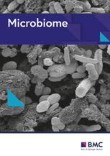While it is far too soon to see any disease specific pharmaceuticals or vaccines in fact none of the CoVs infecting humans has a vaccine.
I am beginning to see reports on drug trials of existing products and products being worked on for SARS that got shelved when the disease failed to reappear.
I am not qualified to comment on these but if it is an area of interest to you the link below should answer most question. It looks in some detail at the protein structure and conformational changes, the function of key short polypeptides (a few bases), the compounds that show promise, how they interact with the host's protein and how nCov differs from MERS or SARS and how/why that matters. The bottleneck at present is a lack of live virus outside China once these are disseminated will see a flood of papers giving early lab test results for everything they try. I post the link as a reference that can be used to see how it works or why it hasn't.
http://virological.org/uploads/short...Yw2rfJASAS.pdf
I am beginning to see reports on drug trials of existing products and products being worked on for SARS that got shelved when the disease failed to reappear.
I am not qualified to comment on these but if it is an area of interest to you the link below should answer most question. It looks in some detail at the protein structure and conformational changes, the function of key short polypeptides (a few bases), the compounds that show promise, how they interact with the host's protein and how nCov differs from MERS or SARS and how/why that matters. The bottleneck at present is a lack of live virus outside China once these are disseminated will see a flood of papers giving early lab test results for everything they try. I post the link as a reference that can be used to see how it works or why it hasn't.
http://virological.org/uploads/short...Yw2rfJASAS.pdf


Comment